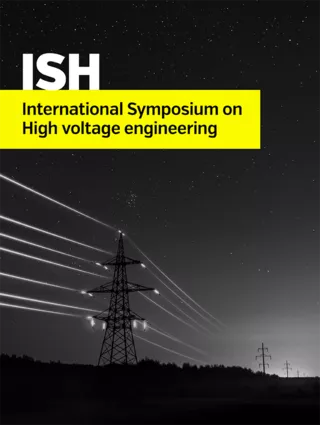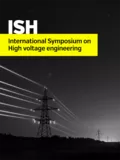Summary
In recent years, in addition to portable equipment, applications of lithium ion batteries are expanding to vehicles and power leveling. Therefore, power storage devices such as lithium ion batteries are expected to be used for high voltage devices. Placing the power storage device close to the high voltage device can affect the state of charge of the power storage device. However, little research has been done on this problem. The presence or absence of a change in the state of charge of the power storage device close to the high voltage device was verified under the condition that no spark discharge occurred. Van de Graaff generator and high voltage amplifier are used as high voltage equipment, film capacitor and lithium ion battery are used as power storage device. The distance between the Van de Graaff generator and the tip of the capacitor terminal was 1.0 to 20.0 cm. Since one terminal of the capacitor was grounded (= 0 V), it was expected that it would be around 0 V even if the voltage of the capacitor lowered. However, after turning off the 9V power, the capacitor voltage reversed polarity in a few seconds and reached -10.0 V. As the distance increased the voltage drop rate decreased. From the above, it was cleared that some discharge phenomena without sparks change the charging level and polarity of the capacitor in the vicinity of the high voltage device. The same effect was able to be verified even with a lithium ion battery. In addition, in order to clarify the relationship between electric field distribution and charge transfer, experiments were conducted using a capacitor having terminals with a curvature radius of 1.50 mm to 5.0 mm. The relationship between the distance between the Van de Graaff generator and the electrode and the voltage drop phenomenon to the opposite polarity was investigated. As a result, it was confirmed that there was a condition under which the charged state changed without generating any spark discharge using any electrode. The mechanism of voltage drop to reverse polarity was discussed. It is clear that the positive charge generated by the corona discharge moves to the negatively charged Van de Graaff generator, causing a voltage drop across the capacitor. On the other hand, the voltage drop of the opposite polarity is considered to be caused by the negative charge remaining on the capacitor electrode which is not grounded.
Additional informations
| Publication type | ISH Collection |
|---|---|
| Reference | ISH2017_202 |
| Publication year | |
| Publisher | ISH |
| File size | 765 KB |
| Pages number | 6 |
| Price for non member | Free |
| Price for member | Free |
Authors
CARR, MITCHARD, STONE, NISHIMURA, SHIMIZU
Keywords
State of Charge, Power Storage Devices, Polarity, Corona Discharge



